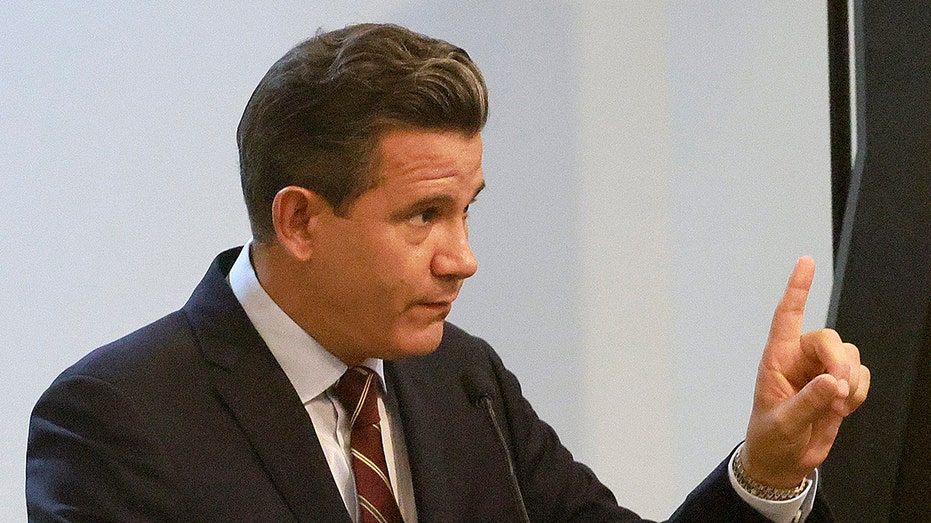In a significant political move that has captured attention across Florida, a prominent member of the Democratic Party has declared their decision to switch to no party affiliation. The announcement comes with a strong critique of the current state of the Democratic Party in Florida, which the official described as “dead.”
The individual, who has been an active figure in the state’s political landscape, voiced their disillusionment with the party’s direction, leadership, and ability to connect with the electorate. This announcement has sparked conversations and debate among political analysts, party members, and the general public about the future of the Democratic Party in the state.
During a press conference outlining their decision, the former Democrat expressed frustration over what they see as a lack of coherent strategy and effectiveness within the party. “I have watched as our party has struggled to represent the interests of Floridians,” they said. “It has become increasingly clear to me that the Democratic Party in Florida is no longer capable of fostering the change our communities desperately need.”
Florida has long been a battleground state with a diverse political landscape. While the Democratic Party has enjoyed periods of success, recent elections have seen a steady decline in both party registration and electoral victories. The departure of this prominent figure raises questions about whether it reflects a broader trend of dissatisfaction among Democrats across the state.
Political experts noted that the announcement could lead to a further fragmentation of the party, as it may encourage others who feel similarly disillusioned to follow suit. As the former Democrat transitions to an independent status, the focus is now on how this change will impact future elections and the balance of power in Florida’s political sphere.
The implications of switching to no party affiliation can be significant. Independent voters in Florida play a crucial role in elections. With the state’s political dynamics shifting, candidates will need to find ways to appeal to a growing segment of the electorate that prefers not to align with either major party. Experts suggest that this demographic could become increasingly influential in determining the outcomes of future races.
Moreover, the announcement has led to discussions about the party infrastructure in Florida. Critics have pointed to a lack of support for grassroots initiatives and an inability to connect with younger voters as key factors contributing to the party’s decline. Some observers argue that the party must reassess its strategies and outreach efforts to regain relevance in the eyes of voters.
In response to the news, Florida Democratic Party officials have voiced their commitment to rebuilding the party and addressing the concerns raised by members. They point to ongoing efforts to engage with diverse communities and create a more inclusive platform. However, the former Democrat argued that these efforts have not been effective enough to inspire confidence among voters or party members.
As the story continues to unfold, many are closely watching the reaction from both sides of the political aisle. Republicans have seized the opportunity to highlight the issues within the Democratic Party, framing the departure as a validation of their messaging and approach to governance. “Even members of the Democratic Party are recognizing that it’s time for a change,” stated a Republican spokesperson. “Floridians want practical solutions, not just empty promises.”
The shift to no party affiliation is not unique to Florida. Across the United States, there have been increasing numbers of voters registering as independents. This reflects a growing trend of dissatisfaction with traditional party politics and an appetite for alternative candidates and ideas. The Florida case may be indicative of a larger national trend, where voters are increasingly seeking leaders who prioritize issues over party allegiance.
Historically, Florida has played a crucial role in national elections, often tipping the balance in favor of one party or another. As the Sunshine State approaches the next election cycle, both parties are acutely aware of the need to mobilize their bases while also attracting independent voters to secure victory.
The decision made by the former Democratic figure invites broader discussions on the role of identity in political affiliation. While political parties have traditionally provided a framework for individuals to express their beliefs, the current political climate is one of rapid change, where affiliations are becoming more fluid and less rigid. This has raised important questions about what it means to be a Democrat or a Republican in today’s world and whether party loyalty is still a relevant measure of political alignment.
For now, the spotlight remains on Florida as both parties prepare for a challenging election season ahead. With the former Democrat’s declaration echoing through the political landscape, it serves as a reminder that the future of party loyalty and affiliation is increasingly uncertain. As Floridians head to the polls in upcoming elections, they may find themselves presented with new choices that reflect a changing political ethos.
In conclusion, the declaration to switch to no party affiliation by this well-known Florida Democrat is a poignant reflection of the current state of the political landscape. The challenges facing the Democratic Party in Florida, as highlighted in this announcement, may signal a pivotal moment for the party’s future. As political dynamics continue to evolve, this situation exemplifies a shifting electorate that values ideas and solutions over traditional party affiliations.
































